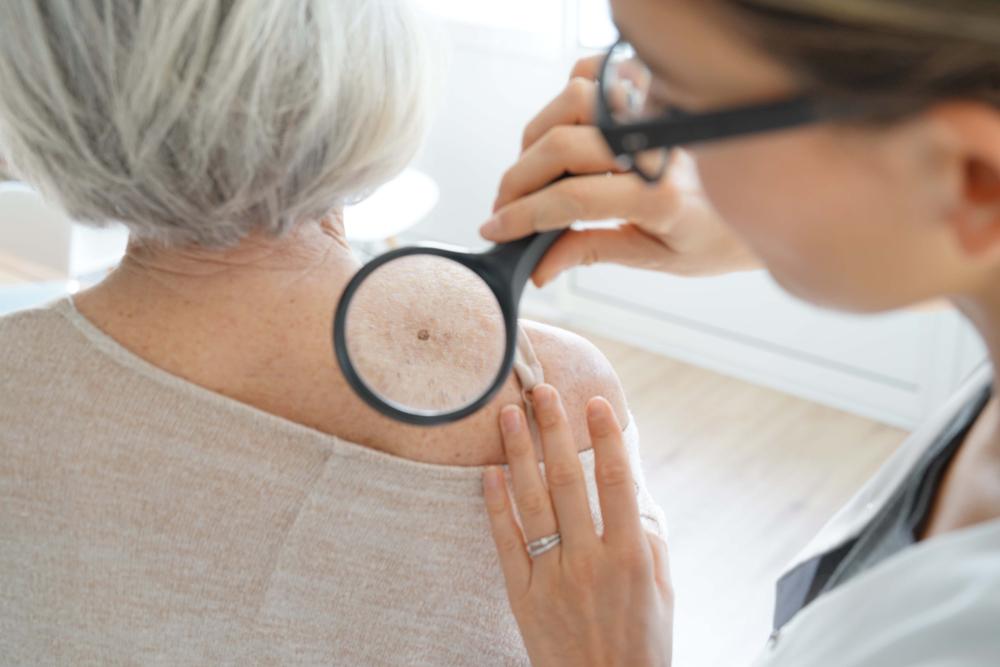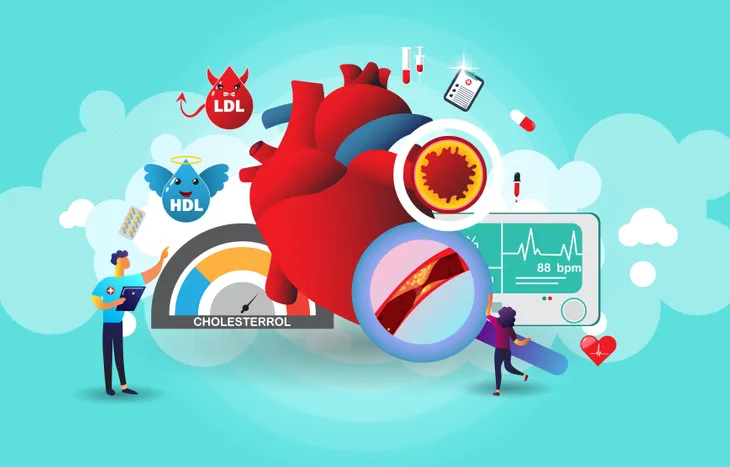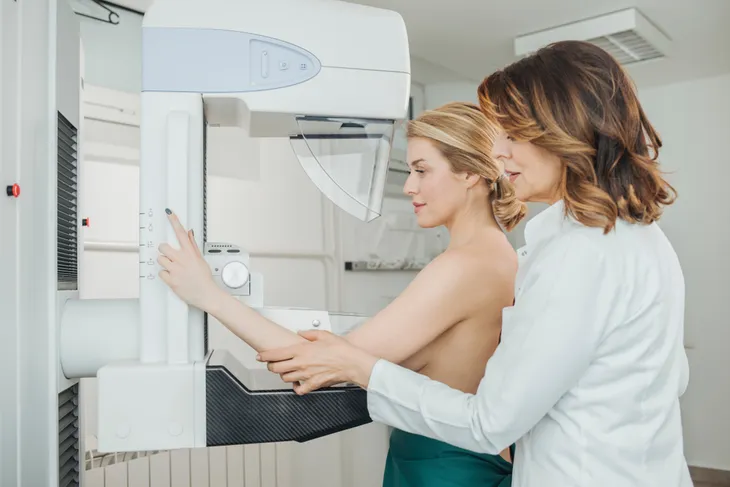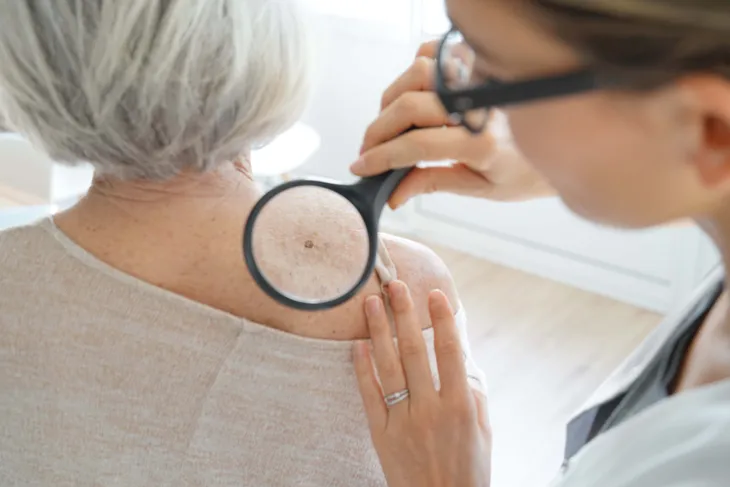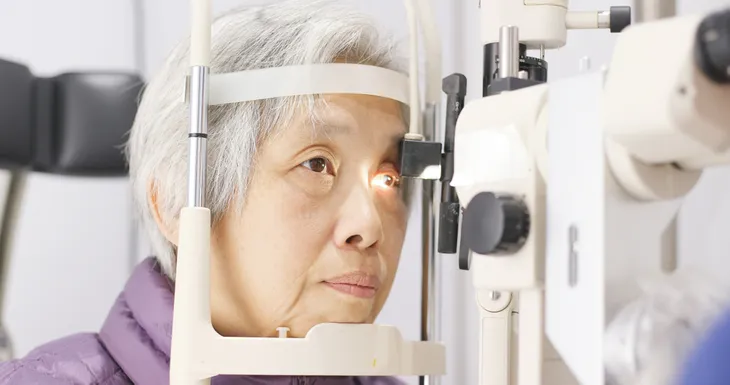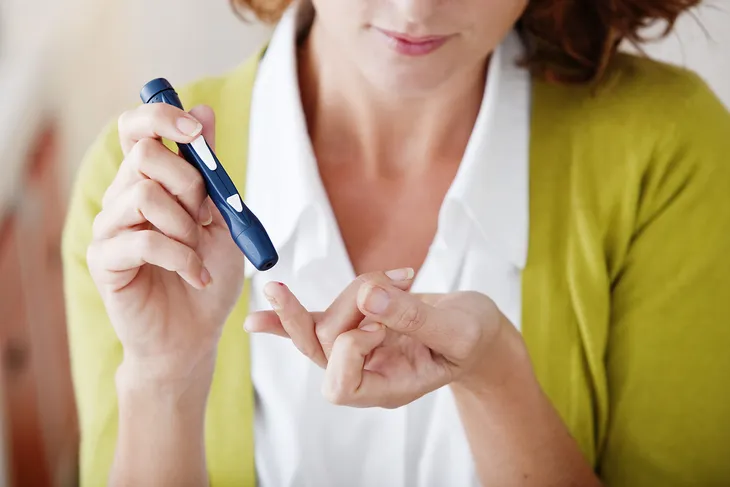Women entering their 40s will be welcomed by their doctor with tests and screenings. As much as we hate all the extra testing it’s crucial to keeping our body’s healthy. As we age our bodies change and we become more susceptible to certain conditions and diseases. By screening for these conditions we can prevent them from becoming worse or get rid of them entirely.
Your doctor will be your number one resource during this time. He or she will follow the guidelines set by experts in cancer, heart disease, and many other areas to decide when is the best time to test. The best thing a woman can do is be prepared with questions for her doctor and learn as much as she can about her health and how she can proactively care for herself.
With all this in mind, below we cover the medical tests women over 40 must get and what they can expect from the test.
Blood Pressure Screening
Your blood pressure is the amount of pressure it takes for your heart to pump blood throughout your body. As you age, your blood pressure tends to increase as well. High blood pressure puts you at a higher risk for stroke, heart attack, and a slew of other health conditions, making this one important (and easy) test that women over 40 should get.
The American Heart Association tells us that if our blood pressure is normal, less than 120mmHg/80mmHg, then we should have it checked every two years. However, if your blood pressure is higher than normal, you should get it checked more often. Thankfully, high blood pressure can be managed with medication and simple lifestyle changes.
Thyroid Test
Women over 40 should have their thyroid function checked regularly by their physician. The thyroid is a small butterfly-shaped gland in the front of the neck that plays a vital role in your well-being. Hypothyroidism, or the production of too little thyroid hormone, is more common in women than it is in men. With 13-percent of women having hypothyroidism, says Harvard Health Publishing.
Hypothyroidism can cause multiple issues depending on the person and the severity. You can experience less extreme symptoms, such as hair loss or brittle nails. Or you might have more concerning signs like fatigue, aches, and pains. To check your thyroid function your doctor will perform a blood test that will tell him or her if your thyroid hormone levels are normal. This is another test to help make sure you stay healthy through your 40s and beyond.
Cholesterol Check
Cholesterol has been a buzz health term for years and not everyone really understands why it’s important and how it affects your health. We’re here to change that! To start, cholesterol testing, also called a fasting lipid panel, checks your total cholesterol, low-density lipoprotein(LDL) (“bad” cholesterol), triglycerides (TG), and high-density lipoprotein (HDL) (“good” cholesterol). It’s done through a blood test after facing for 8 to 12-hours and gives your physician an idea of your risk for coronary artery disease and other conditions says the American Heart Association.
Cholesterol isn’t always bad. It’s the buildup of cholesterol in the arteries that transports blood to your heart and brain that can be scary. If you’re a woman over the age of 40, then it’s time to get your cholesterol checked to determine your risk of coronary artery disease. If you find out that your cholesterol is high, your doctor may suggest medication or lifestyle changes in an effort to manage this condition.
Mammogram
No one likes going for their mammogram but it’s one of those necessary evils. The recommendations of the American Cancer Society for mammograms vary based upon your age and your risk level. If you are 40- to 45-years-old, then the source suggests that women have a choice if they’d like to have a mammogram to screen for breast cancer. However, once you’re 45 you should get a mammogram each year.
Let your doctor know if someone in your family has had breast cancer. This will change the guidelines on when you receive your first mammogram. If you are at a higher risk for breast cancer you might also have an MRI with your mammograms to provide better pictures of your breast tissue. Keep your doctor up to date with any health changes and the two of you can form a plan on how to best keep you healthy and safe.
Skin Cancer Screening
Skin cancer can turn up at any age, but it is more common as you get older. If you have fair skin or suffered any sunburns as a kid, it’s time to see your dermatologist. A dermatologist will look you over to check for any skin abnormalities and moles. It’s typically recommended to see a dermatologist every year.
On top of seeing your dermatologist, you should inspect your skin regularly as well. Women’s Health magazine says to, “do a self-exam every month looking for moles that are asymmetrical, larger than a pencil eraser, or have an irregular border or color. Alert a dermatologist if moles or spots are changing, growing, or bleeding.” As you age, keeping your skin as one of your top priorities will not only help you age more gracefully but also safely.
Cervical Cancer Screening
Women over the age of 40 need to have testing done to screen for the development of cervical cancer. “Women between the ages of 30 and 65 should have a Pap test plus an HPV test (called “co-testing”) done every 5 years. This is the preferred approach, but it’s OK to have a Pap test alone every 3 years,” says the American Cancer Society.
If you are at an increased risk for cervical cancer due to HIV, organ transplant, or other conditions, you should talk to your doctor about how this will change their screening frequency. No one wants to have a Pap smear and HPV testing done but thankfully most women only have to do it every 5 years. (For more information, check out our article on Cancer Screening Tests Every Woman Should Get).
Eye Exam
If you’ve been one of the lucky ones who made it to their 40s without glasses or contacts, give yourself a pat on the back. For those women who already see an optometrist or ophthalmologist, you should follow their suggestions for how often you should be seen. If you don’t already see an eye doctor, once you hit 40, then it’s time to make an appointment.
According to Health, you should get a baseline eye exam when you are 40. This will help to detect any changes in your vision and assess your risk for cataracts or glaucoma. The most common vision change once you reach 40 is farsightedness. This is easily treated with contacts or glasses.
Blood Glucose Test
If your doctor finds that you have high blood glucose, or blood sugar, level during one of your routine blood draws you might be at an increased risk for developing diabetes. Type 2 diabetes is when the pancreas doesn’t secrete enough of the hormone that regulates glucose in the blood. This can lead to heart disease, stroke, and other problems, reports the American Heart Association.
The American Diabetes Association recommends that you have your fasting blood glucose checked every year once you turn 45. If your doctor does find out that you have high blood sugar levels (including diabetes mellitus type 2), they will likely recommend you change your diet and exercise. If that isn’t sufficient, your doctor might prescribe oral medications and/or injection medications.
Depression Screening
Life can affect us in so many different ways. Keeping tabs on your mental health shouldn’t ever be overlooked. The American Academy of Family Physicians recommends “…screening for depression in the general adult population, and screening should be implemented with adequate systems in place to ensure accurate diagnosis, effective treatment, and appropriate follow-up. Screening is recommended for all adults older than 18 years, regardless of risk factors.”
When your doctor or nurse hands you the depression screening sheet, you should answer the questions honestly. Be open with your doctor about your feelings, all healthcare professionals are there to help you. What a wonderful time we live in when mental health is now openly talked about and women don’t have to hide how they are feeling.
Colorectal Cancer Screening
Everyone is now hearing the importance of their gut health, and there is a very good reason for this. A large part of your immune system is in your gut, says Dan Peterson, Assistant Professor of Pathology at the Johns Hopkins University School of Medicine. Taking your intestinal health seriously by getting a colorectal cancer screening is one of the ways you can stay healthy in your 40s.
The American Cancer Society asks that people with an average risk for colorectal cancer start screening at age 45. Your doctor will determine the type of screening you need. Some people can have it done through a stool test, whereas others may need a colonoscopy. Whichever way your doctor decides to screen, it’s important to follow through with the testing to keep your gut healthy.
Dental Exam
We hope you don’t wait until you’re 40 to see a dentist, but we wanted to put a dental exam on the list to make sure you are keeping your teeth and mouth clean and healthy. Most people should see their dentist every 6 months for a cleaning and to look for any changes in their teeth. Most people will need some dental work done, especially as they age and their teeth wear.
The fear of going to the dentist can be very real for some people. If you are one of those, please don’t let that stop you. Talk to multiple dentists to find one that calms your nerves and may even offer sedated dentistry. Your teeth need to last a lifetime and keeping them clean throughout your 40s will keep you smiling into your 50s.
Immunizations Up To Date
Immunizations aren’t a test but they are something that you need to stay up to date with, even as you get older. If you don’t have a record of your immunizations, ask your doctor to provide you with one. It should list each immunization and when you received it. This will help your doctor decide if you need any booster shots, such as DTaP (diphtheria, tetanus, and pertussis) which needs to be done every 10 years.
You should be getting the influenza shot each year. If you have a higher risk for pneumonia or shingles, your doctor might recommend additional immunizations. Women in their 40s aren’t immune to disease and staying on top of your health is the best way to ensure you get to enjoy everything that life brings you.
